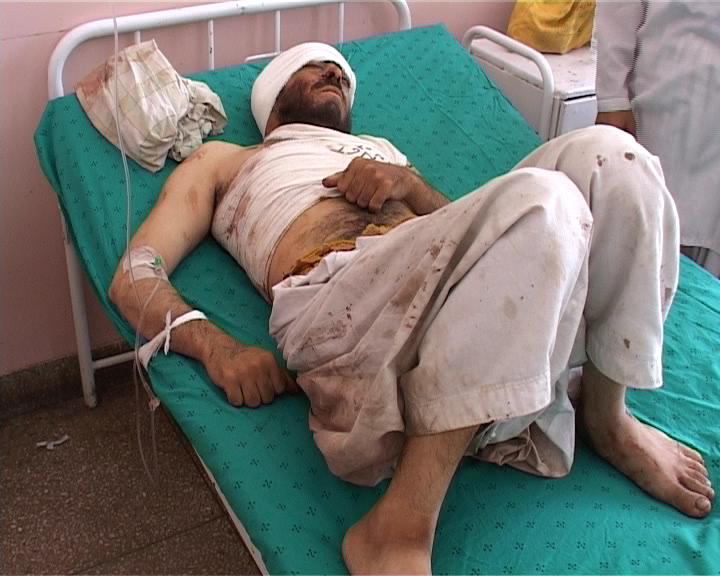A few hours later the hospital's intensive care unit was packed with dozens of injured blast victims. At least 40 dead and over 60 injured were brought to the hospital.
"It was a very difficult night for all of us. We were tired, hungry and thirsty but we had to work hard and save lives," Mohammad Hashim, a surgeon at the hospital, told IRIN, adding: "We worked through the night to treat the casualties."
All hospital staff were called in to help.
The 350-bed hospital is supported by the International Committee of the Red Cross (ICRC) and serves patients and war victims from Kandahar and neighbouring provinces.
ICRC sent in a medical team, including a surgeon, an anaesthetist, a head nurse and a surgical ward nurse, plus two field officers as back-up.
"No matter that it was the time for people to break their fast, or that it was difficult to find transport, all hospital staff who came said that the most important thing was to help the victims," Julio Guilbert Vidal, an ICRC surgeon who went to the hospital immediately after the blast, told IRIN.
|
Photo: Sarwar Amani/IRIN  |
| A medic attends an injured man in Mirwais Hospital on 26 August |
The Interior Ministry said a truck with explosives was detonated by remote control in the centre of Kandahar city. The explosion was very powerful, completely destroying over a dozen of nearby houses.
Many of the victims were women and children; an ICRC staff member also died when the ceiling of the room he was in collapsed.
The blast was condemned by UN Secretary-General Ban Ki-moon and other leaders but no group has claimed responsibility, though President Hamid Karzai has blamed the Taliban.
The number of civilian victims of the conflict in Afghanistan has steadily risen over the past few years.
In the first six months of 2009, 1,013 civilians were killed, compared to 818 in the same period in 2008, and 684 in the first six months of 2007, according to a report by the human rights unit of the UN Assistance Mission in Afghanistan.
"Both anti-government elements and pro-government forces are responsible for the increase in civilian casualties," said the report, adding that more civilians had been killed by the insurgents than by Afghan and international forces.
ad/at/cb
This article was produced by IRIN News while it was part of the United Nations Office for the Coordination of Humanitarian Affairs. Please send queries on copyright or liability to the UN. For more information: https://shop.un.org/rights-permissions





